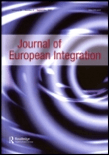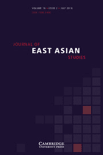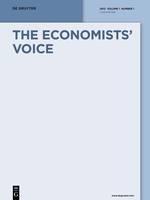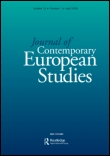
Contemporary Europe-Sovremennaya Evropa
Scope & Guideline
Unveiling the Forces Shaping Modern European Society
Introduction
Aims and Scopes
- European Integration and Cooperation:
The journal focuses on the processes and implications of European integration, examining how EU policies and actions affect member states and their relationships with non-EU countries. - Geopolitical Dynamics:
It analyzes the geopolitical landscape of Europe, including the influence of major powers, regional conflicts, and alliances, particularly in the context of relations with Russia and the US. - Social and Cultural Issues:
The journal addresses social dynamics, cultural identities, and migration trends within Europe, exploring how these factors shape political discourse and public policy. - Economic Policies and Challenges:
Research on economic integration, trade relations, and the impact of crises (such as Brexit and the COVID-19 pandemic) on European economies is a core area of focus. - Security and Defense Policies:
The publication examines security challenges, defense strategies, and the role of institutions like NATO in maintaining stability within Europe. - Environmental and Sustainability Issues:
There is a growing emphasis on environmental policies and sustainability, particularly in relation to the EU's green transition and energy strategies.
Trending and Emerging
- Digital Transformation and Sovereignty:
There is an increasing focus on how digital transformation affects EU policies, governance, and sovereignty, highlighting the significance of digital markets and services. - Impact of Global Crises on Europe:
Research exploring the impacts of global crises, such as the COVID-19 pandemic and geopolitical tensions, on Europe's political, economic, and social landscapes has gained traction. - Populism and Euroscepticism:
The rise of populist movements and Euroscepticism, particularly in Eastern Europe, is a growing area of research, reflecting changing political sentiments across the continent. - Environmental Sustainability and Climate Policy:
Emerging themes related to environmental sustainability, climate change adaptation, and energy transition are increasingly prominent, resonating with global concerns. - Social Inequality and Migration Policies:
The journal has seen a rise in studies addressing social inequality, migration policies, and their implications for social cohesion and public health in Europe. - Geopolitical Shifts and Strategic Autonomy:
Analyses of geopolitical shifts, particularly concerning the EU's strategic autonomy in relation to major global powers, are becoming more prevalent, reflecting current political realities.
Declining or Waning
- Historical Analysis of European Conflicts:
While historical perspectives on European conflicts were once a staple, there has been a noticeable decline in publications focused on historical events, suggesting a shift towards more contemporary analyses. - Traditional Political Party Dynamics:
The examination of traditional political parties and their roles within European politics has waned, with less emphasis on established party systems in favor of newer political movements and populism. - Theoretical Frameworks in European Studies:
The use of abstract theoretical frameworks to analyze European integration has become less common, with a preference for empirical studies and case analyses reflecting practical concerns. - Legal Aspects of EU Policy:
Research specifically focused on legal frameworks and implications of EU policies is less frequently addressed, possibly overshadowed by more pressing political and social issues.
Similar Journals

International Relations of the Asia-Pacific
Navigating the Nexus of Asia-Pacific DynamicsInternational Relations of the Asia-Pacific, published by Oxford University Press, is a premier academic journal that delves into the intricate dynamics of international relations in the Asia-Pacific region. Since its inception in 2001, the journal has garnered significant attention within the fields of Political Science, Economics, and Sociology, achieving a respected Q2 quartile ranking in various categories as of 2023. With a Scopus ranking of #172 out of 706 in Political Science and International Relations, it represents the voice of contemporary discourse at the intersection of various social sciences. The journal's objective is to enrich understanding of geopolitical issues, economic trends, and sociopolitical phenomena shaping the Asia-Pacific—a region characterized by its rapid transformation and strategic importance. Despite its non-open access status, readers can expect rigorously vetted articles that challenge conventional paradigms and foster informed debate among academics, policymakers, and students alike. The journal remains an essential resource for anyone looking to navigate the complexities of international affairs in one of the world’s most dynamic regions.

Journal of European Integration
Fostering Insights into European Integration ChallengesJournal of European Integration is a leading academic journal dedicated to the study of European politics and the dynamics of European integration. Published by Routledge Journals, part of the esteemed Taylor & Francis Ltd, this journal has established itself as a premier outlet for high-quality research, reflected in its Q1 category rankings in both Political Science and International Relations, as well as in Sociology. With a robust publication history spanning from 1977 to 2024, it offers vital insights into the complexities of political structures and societal impacts within Europe. Notably, it ranks in the 95th percentile in Political Science and International Relations and the 92nd percentile in Sociology, presenting a significant platform for scholars and practitioners alike. Although it does not currently offer Open Access options, the journal's comprehensive content serves as an essential resource for those engaged in understanding contemporary European issues and policy debates. Researchers, professionals, and students will find the Journal of European Integration to be an indispensable source of knowledge and academic discourse.

Journal of East Asian Studies
Bridging Disciplines in East Asian ResearchThe Journal of East Asian Studies, published by Cambridge University Press, serves as a pivotal academic platform for scholars and practitioners who are dedicated to the multifaceted exploration of East Asian societies. With an ISSN of 1598-2408 and an E-ISSN of 2234-6643, this journal has been disseminating significant research since its inception in 2008 and continues to be a crucial resource for advancing scholarly dialogue up to 2024. Recognized for its contributions, it holds prestigious quartile rankings in various fields, including Q2 in Development, Political Science and International Relations, and Q3 in Economics and Econometrics, showcasing its broad impact within the social sciences. With Scopus rankings reflecting its robust presence in political science, sociology, and economics, this journal appeals to a wide audience of researchers, educators, and students. As it aims to foster a comprehensive understanding of East Asian political, economic, and social dynamics, the Journal of East Asian Studies remains an essential resource for those looking to engage deeply with the complexities of this vital region.

Economists Voice
Connecting Scholars, Influencing Economic DiscourseEconomists Voice is a prominent academic journal dedicated to exploring contemporary issues in the fields of economics, business, management, and accounting. Published by WALTER DE GRUYTER GMBH in Germany, this journal provides a platform for researchers, practitioners, and scholars to share their insights and foster discussions that impact the economic landscape. With an ISSN of 2194-6167 and an E-ISSN of 1553-3832, it archives a rich history of intellectual contributions since its inception in 2004. As of 2023, it holds a commendable position in the Q3 category for both Business, Management, and Accounting and Economics, Econometrics and Finance. Although not open access, the journal’s commitment to high-quality research is evident in its Scopus rankings, which place it within the 39th and 23rd percentiles for economics and business, respectively. Through its rigorous peer-review process and emphasis on empirical findings, Economists Voice serves as an essential resource for professionals and students alike who are eager to deepen their understanding of economic theories and their practical applications.

Europolity-Continuity and Change in European Governance
Cultivating Insight into Europe's Political TransformationsEuropolity-Continuity and Change in European Governance, an esteemed journal published by the NATL SCH POLITICAL STUDIES & PUBLIC ADM, delves into the dynamic landscape of European governance, addressing the intricate balance of continuity and change within its frameworks. Established as an Open Access journal since 2007, it aims to disseminate innovative research that fosters dialogue among scholars, policymakers, and practitioners in the fields of political science and public administration. With its ISSN 2344-2255 and E-ISSN 2247-7721, Europolity invites contributions that explore topical issues ranging from policy analysis to governance structures across Europe, making it an invaluable resource for researchers and professionals seeking to understand the complexities of European governance. The journal’s commitment to accessibility and academic rigor ensures that it remains a pivotal platform for thought leadership and scholarly discourse in its discipline.

TalTech Journal of European Studies
Bridging disciplines to illuminate European affairs.TalTech Journal of European Studies, published by SCIENDO, is a distinguished Open Access journal dedicated to advancing the fields of History, Law, Political Science, and Sociology. Since its inception in 2013, this journal has become a crucial platform for scholarly discourse, catering to an international audience interested in the complexities of European studies. Registered under ISSN 2674-4600 and E-ISSN 2674-4619, the journal is peer-reviewed and aims to disseminate high-impact research findings that drive forward academic inquiry and practical applications within its diverse scopes. With a notable classification in the Q4 quartile across various categories, including History, Law, and Political Science, it holds its ground against global standards, evidenced by its Scopus rankings. The journal not only supports the academic community by offering a platform for innovative research but also strengthens collaborative efforts to address contemporary challenges in European contexts. The accessibility of its content makes it a vital resource for researchers, professionals, and students seeking comprehensive insights into European affairs.

Cuadernos Europeos de Deusto
Illuminating Emerging Trends in European ScholarshipCuadernos Europeos de Deusto is a distinguished academic journal published by UNIVERSIDAD DEUSTO, specializing in the interdisciplinary fields of Cultural Studies, History, Law, Political Science, and Economics. With its ISSN 1130-8354 and E-ISSN 2445-3587, the journal has made significant strides in fostering scholarly discourse since it became an Open Access publication in 2016, ensuring that research is accessible to a wider audience. Based in Bilbao, Spain, it encompasses a global perspective on European studies and seeks to highlight critical issues and emerging trends in its scope, actively pursuing the convergence of research from 2017 to 2024. The journal's impact is reflected in its rankings across various disciplines, with notable presence in the Scopus database, particularly in the fields of History and Cultural Studies, underscoring its value to researchers and students alike. With its commitment to scholarly excellence and engagement, Cuadernos Europeos de Deusto is a vital resource for those seeking to advance their understanding of European cultural and social dynamics.

Eastern Journal of European Studies
Bridging academia and policy through open-access research.Eastern Journal of European Studies is a distinguished open-access platform published by UNIV ALEXANDRU IOAN CUZA, CENTRUL STUDII EUROPENE, dedicated to advancing research and scholarship in the fields of Economics, History, Political Science, and Sociology. Since its inception in 2010, this journal has been committed to fostering a rich dialogue among scholars and practitioners, emphasizing interdisciplinary approaches to European studies. With a notable Q1 ranking in History and Q3 rankings in other social sciences categories as of 2023, the journal holds a strong position in both European and global research landscapes. As part of the Scopus indexing, it stands out with impressive percentiles, including the 90th percentile in History. By providing an open-access platform, the journal ensures that critical research is widely accessible, bridging gaps between academia and the public. It serves as an essential resource for researchers, policymakers, and students interested in exploring Europe’s complex dynamics, making significant contributions to contemporary debates and policy implications.

Journal of Contemporary European Research
Illuminating the Landscape of European StudiesJournal of Contemporary European Research is a premier scholarly publication dedicated to the analysis and exploration of contemporary issues within European studies, publishing since 2005 under an Open Access model that promotes accessibility and dissemination of knowledge. Published by the University Association for Contemporary European Studies (UACES), this journal has established itself as a vital resource in the field of Political Science and International Relations, currently ranked in the Q2 category according to the latest evaluations in 2023. Based in the United Kingdom, its articles delve into diverse topics involving European policy, social dynamics, and international relations, contributing significant insights relevant to scholars, practitioners, and students alike. With a commendable Scopus ranking of #206 out of 706 in its category, it sits within the 70th percentile, reflecting its impact and importance in contemporary research discussions. The journal operates from the address of School of Public Policy, University College London, England, ensuring a robust influence from one of the leading academic institutions.

Journal of Contemporary European Studies
Illuminating Contemporary Issues in European StudiesJournal of Contemporary European Studies, published by Routledge Journals, Taylor & Francis Ltd, stands as a pivotal resource in the fields of Cultural Studies, Political Science, and Sociology. With a distinguished Q1 ranking in Cultural Studies and prominent positions in Political Science and International Relations, this journal is committed to exploring the complexities of European society through a contemporary lens. The journal caters to researchers, professionals, and students interested in understanding the socio-political dynamics within Europe from 2007 to 2024 and beyond. Although it operates on a standard subscription basis, the journal ensures that its high-quality research and insightful articles are accessible to its audience. With impressive rankings in Scopus, boasting a 91st percentile in Cultural Studies, the journal not only contributes significantly to academic discourse but also fosters a deeper understanding of Europe's evolving cultural and political landscape.